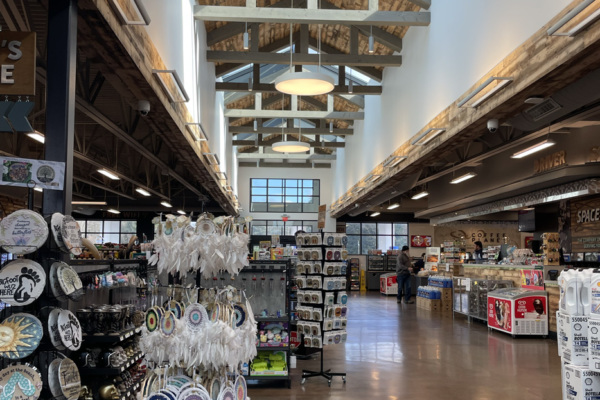Information is a pool in which truckstop and travel plaza operators can either sink or swim, and when used correctly, information can provide valuable insights to improve operations. Darren Schulte, NATSO’s vice president of membership, said most operators already have data from their existing systems to improve sales.
“I often look at the business intelligence tools as less is more,” Schulte said. “There is a tendency to want more and more information, but that comes with not only physical costs to get the software and equipment but also labor costs.”
What’s more, Schulte said he often finds operators who want more data but aren’t using the information they already have. Before investing in new technology, operators should determine what they want to accomplish with the data they’re seeking. Then, they can identify the key performance indicators and other information they capture with their current equipment.
Even rudimentary point-of-sale or back-office systems tend to track data. “If your POS and back-office system allows you to understand what your average ticket/purchase is and you realize your fuel margins are getting lower so you want to focus on inside sales, you can look at what your average non-fuel purchase is,” Schulte said. “Instead of focusing on industry numbers, figure out what your number is and work on improving it.”
The same holds true for net operating costs and margins. “Instead of trying to figure out what everyone else is doing, figure out yours,” Schulte explained. “We tend to waste a lot of time trying to figure out what this person is doing or what a certain number is. I’d rather find out your current number and improve it.”
There can be added value in sharing data throughout the company. “If margins on fuel are tight and you want to focus on inside sales, you can track your average ticket, share information with cashiers, and turn it into a competition,” Schulte said, adding that to be fair, operators can set goals per shift and reward winning team members with something fun. “Whether you have a lot of customers or a few customers, tracking average tickets is fair to everybody.”
Sharing data can also help team members gain a better understanding of the business. “Cashiers working the registers see the money coming in and that is all they see. When you explain there is a cost of doing business and the money coming through isn’t profit, they get a different perspective,” Schulte said. “A cashier doesn’t need to know your net operating cost, but they need to know the impact of a mis-ring, being shortchanged by a customer or a fraudulent customer.”
At one of Schulte’s previous employers, as part of the new employee orientation process management took a fake dollar bill and tore off pieces to represent credit card fees, utility costs, fuel costs, labor and other expenses. “Sharing the information with staff may be scary to some operators, but as scary as it may be, it usually has positive results. We’re working on penny profits, and it is good to share that information that out of every dollar that runs through their registers it produces pennies of profits per dollar,” he said. “I firmly believe most employees want to be part of the solution.”
Sharing information can also help staff realize their important role in the business. “If you have someone that does your orders, make sure they understand the impact of a missed order,” Schulte said. “Do your employees understand the impact of an out-of-stock or stocking the shelves incorrectly? Do they understand the importance of how that impacts the business?”
The Need for Accurate Information
The old adage of garbage in, garbage out holds true, and Schulte said operators want to make sure information is accurate and that they are taking in the full picture. “Your data might be telling you that you don’t have sales, so you think something isn’t working well, but the data might not be giving you the full story,” he said.
One NATSO member brought Schulte in to evaluate why the location’s breakfast program wasn’t generating more sales. “They were using sales data to schedule the build-tos, but the trucks were leaving the lot before the breakfast items were put out. So the data for very early morning sales opportunities was missing. No wonder you’re not selling them,” he said.
When reviewing data, operators also need to consider any extenuating circumstances during a particular period. “It could be something as simple as they’re next to a NASCAR track and during a race it is super busy. If you are looking at your purchasing, you need to account for that,” Schulte said. “As we become more data-focused as a society and a world, we’ve lost sight of simple observational analysis which is very actionable. Like anything with technology, there is a huge potential to overlook the obvious.”
// This article was created for Stop Watch magazine, the magazine of the NATSO Foundation. The NATSO Foundation is the research, education and public outreach subsidiary of NATSO, Inc. The NATSO Foundation provides programs and products aimed at strengthening travel plazas’ ability to meet the needs of the traveling public through improved operational performance and business planning. Visit www.natsofoundation.org for more information. (Donate to the NATSO Foundation here.)
Subscribe to Updates
NATSO provides a breadth of information created to strengthen travel plazas’ ability to meet the needs of the travelling public in an age of disruption. This includes knowledge filled blog posts, articles and publications. If you would like to receive a digest of blog post and articles directly in your inbox, please provide your name, email and the frequency of the updates you want to receive the email digest.



